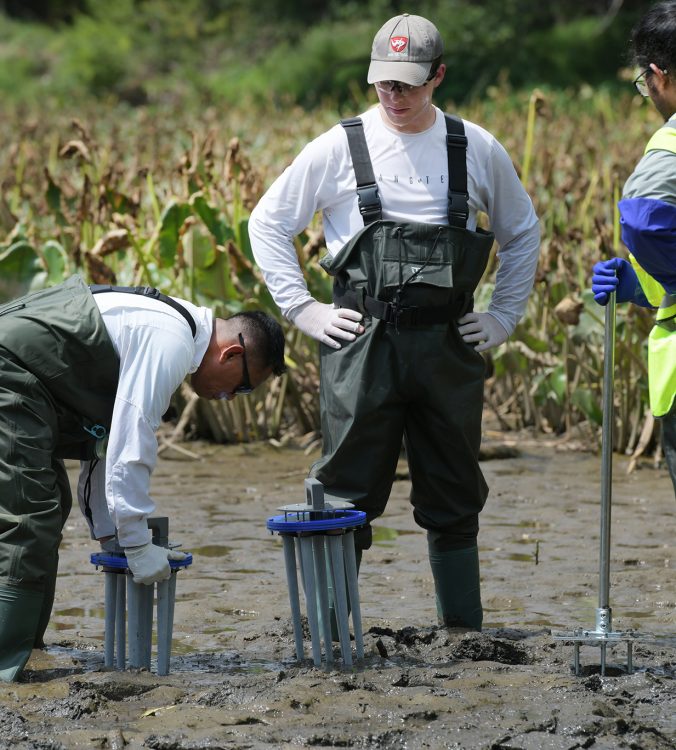At Pepco, we are committed to implementing new and innovative solutions to support our customers and the communities we serve. That work extends to helping maintain a clean and healthy environment.
As part of this commitment, we recently supported the launch of a pilot program to remove industrial chemical contamination from the Anacostia River using a new technology developed by ecoSPEARS, and in partnership with AECOM. This pilot supports the ongoing efforts to investigate, study, and ultimately find solutions to help improve the overall health of the river.
ecoSPEARS is among the grant recipients of the Climate Change Investment Initiative (2c2i), a 10-year, $20 million, commitment launched by our parent company, Exelon, to invest in and cultivate innovative start-ups focused on advancing climate change mitigation, adaptation, and resiliency efforts, while also promoting social equality and economic prosperity.
The company’s SPEARS – Sorbent Polymer Extraction and Remediation System – is a green and sustainable sediment cleanup technology that removes polychlorinated biphenyls (or PCBs), which do not naturally degrade, from lakes and rivers. Initially created by the National Aeronautics and Space Administration (NASA), the SPEARS are placed in the river’s mud and act like a sponge, passively absorbing chemical contamination to help prevent it from migrating to fish and other aquatic species. The SPEARS kinetic process differs from other methods used to remove PCBs and other contaminants such as dredging, which can disrupt the natural environment of lakes and rivers.
“We built this company to truly make a difference within the environment and the communities surrounding America’s waterways,” said Sergie Albino, co-founder, and CEO of ecoSPEARS. “Our mission is to act as a rallying point for people and the planet by building green cleanup technologies that challenge industries to adopt more sustainable approaches in environmental remediation.”
AECOM is supporting the oversight of this pilot, ensuring work is conducted safely and in compliance with all local regulations. Data will be collected over the next 12 months to better understand different aspects of the technology, including how long they need to be left in the ground to achieve effective cleanup and if they can be incorporated more broadly into the Anacostia River cleanup solutions.
“We are excited to invest in this technology and explore a new and innovative approach to helping clean up the Anacostia River,” said Jamie Hill, senior manager of Environmental Management, Pepco. “We look forward to seeing the results over the next year and potentially expanding this effort in the future.”
View this video to learn more about how the ecoSPEARS technology works.


